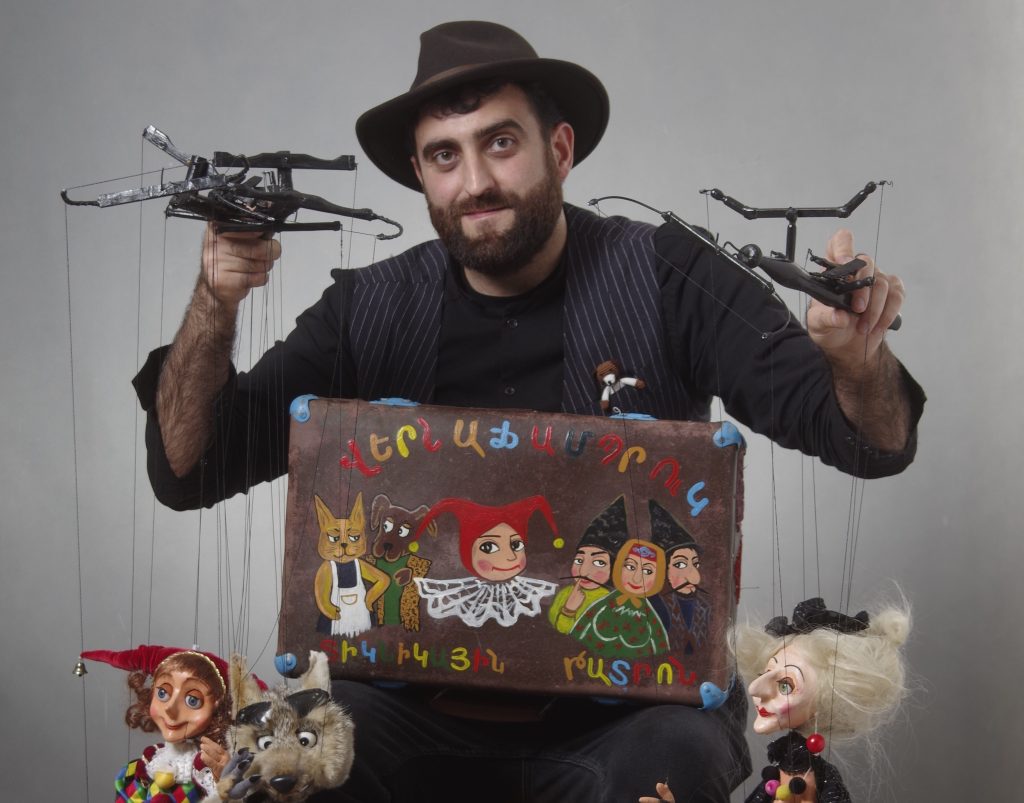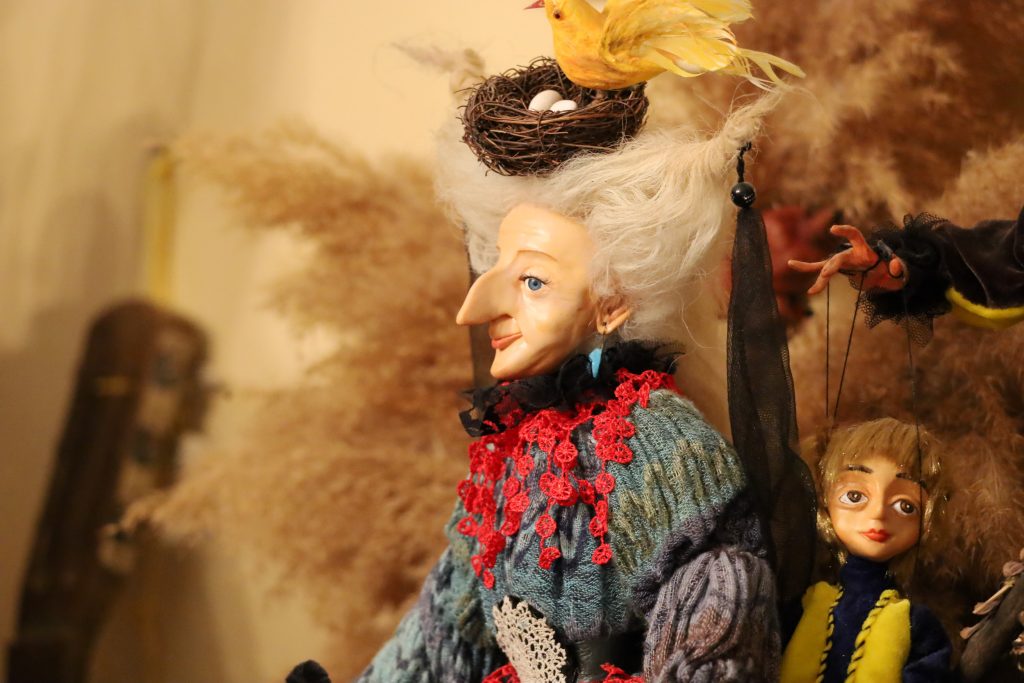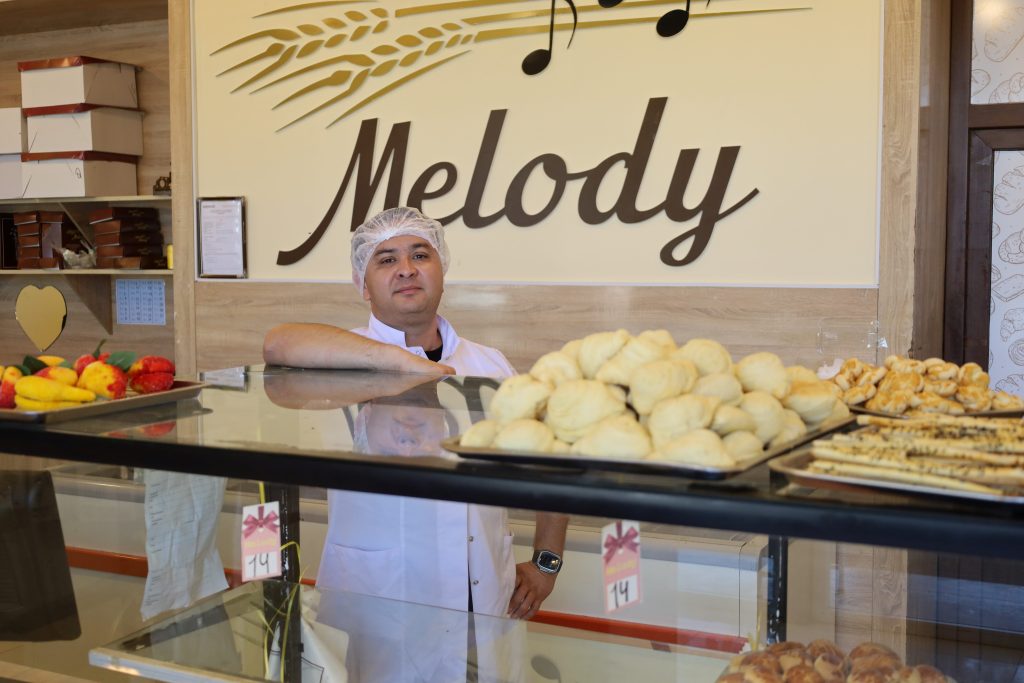
‘Even one piece of equipment is a lifesaver for a small business like ours’
The southeastern region of Georgia – Kvemo Kartli – is home to many ethnic minorities, with Azerbaijanis and Armenians making up to 45% of its population. Yet despite their strong presence, ethnic minorities are not always well integrated into the region’s economic life. The reasons vary from limited access to information and resources due to language barriers, to insufficient capacities to develop and manage their own businesses. To address these issues, a consortium of Georgian NGOs, led by HEKS-EPER Georgia, is using EU support to empower local SMEs and promote collaboration between Georgian, Azerbaijani and Armenian entrepreneurs.
Armen Oganezyan is Armenian. His Art Café in Shaumiani is a well-known place of interest for both local residents and foreigners. The life of his café does not revolve only around tea or coffee – it hosts a one-man marionette theatre, unique in its kind. “I am inspired by the culture of Old Tbilisi, and I try to revive it in my theatre. Guests like to listen to the puppets singing Georgian folk songs, to see them dancing. Puppets make it possible to recreate the culture of Georgia even better than actors on the stage, that is why it is unique.”



Armen has been running his marionette theatre for years, staging the performances for various visitors – tourists and locals – in his own home. “I didn’t have an adapted space, so I was running it in my own bedroom! All the puppets lived in suitcases, as I didn’t have enough space to display them. We tried to schedule the performances, but people kept coming, thinking that it was a state museum, and had to be open all the time,” he recalls. This inspired Armen to transform his passion for the puppet theatre into a true business.
Armen renovated the old wine cellar in his house to adapt it to the needs of the theatre. But many things still had to be done. “We needed chairs, fabrics for curtains, tableware, and even a sewing machine to make puppet dresses. At that moment, my friend came across the call for sub-grants to entrepreneurs announced in Kvemo Kartli by HEKS-EPER Georgia. He helped me to translate the application in Georgian, I can speak fairy well, but writing is a bit difficult for me. In the end, my application was successful!” Armen says.
The EU support helped Armen to equip his Art Café for tourist services, and he how offers theatrical mini-performances, master classes and traditional tea or coffee parties. Receiving up to eight groups of visitors per month – including foreign tourists, families and schoolchildren – the café ensures an additional source of income for Armen and his family.
“It is not easy for Armenians to open a business in Marneuli. There are some difficulties at the decision-making level, but most importantly, there is a lack of support. The EU funding is very important for the development of Georgia, not only for ethnic minorities, but for every Georgian citizen; it gives us the chance to make our dreams come true,” says the entrepreneur.

In 2023 and 2024, EU funds distributed by the HEKS/EPER foundation sustained 33 Georgian, Armenian and Azerbaijani entrepreneurs from the Kvemo Kartli region. The results of this support are already bearing fruit in terms of increased sales and quality of products and services. They have also helped to introduce new offers and improve operational management.
Emil Akhmedov is the Azerbaijani owner of a pastry enterprise in Marneuli. Thanks to EU funding, he was able to purchase a new oven, several mixers and a dough sheeter, which have considerably upgraded the production process. “This equipment helped us to increase the quality of our products, as well as to diversify and scale up our offer. At the moment, we have three bakeries with shops in Marneuli, but we want to open more”, says Emil.
Likewise, the new equipment helped the ‘Shvanre’ cheese enterprise from Dmanisi to increase the variety of products and their shelf life. Nona Ansiani, the owner, moved with her family to Dmanisi in 1990 where they started their own farm, making dairy products and cheeses. The farm gave birth to a family business, which in 2023 expanded to the scale of an enterprise. “With the expansion of the production, we needed new equipment, such as a refrigerator, a packaging machine, a milk collection tank and many accessories,” says Nona. The EU funding contributed to the growth of the enterprise but also allowed ‘Shvanre’ to enter large supermarket chains. The new packaging and labelling helped to make its products more competitive on the market. Nona is optimistic about the future: “We want to have a showroom, a dedicated cheese shop to sell the cheese and organise master classes for groups. In this, the EU support to SMEs in Georgia is crucial. Even one piece of equipment can become a lifesaver for a small business like ours.”

The distribution of EU funds to local small businesses, combined with capacity-building activities for entrepreneurs, was led by HEKS-EPER in close partnership with local organisations in Kvemo Kartli. “Local partner NGOs – the Civic Integration Foundation and the Support Centre for Civil Society Formation – played a crucial role in the community mobilisation and engaging with local businesses,” says Beka Urushadze, Executive Director of HEKS-EPER Georgia. “They were instrumental in disseminating information to SMEs and providing capacity-building, e.g. trainings on the development of business plans, personalised mentorship in marketing, social media, operational management, and accounting. But they also participatied in the selection of SMEs for financial support, and monitored how funds were absorbed.”
Promoting economic development and social inclusion in remote and relatively isolated regions of Georgia is essential for empowering national minorities. And civil society organisations can make a significant contribution in this area. They foster a greater acceptance of ethnic minorities into mainstream society, reducing the risks of potential conflicts in the future. And this approach contributes to building of a peaceful and democratic country.
Author: Volha Prokharava